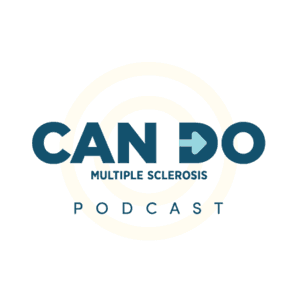How safe are MS therapies? And how do we actually know?
In this episode, neurologist Dr. Nora Möhn explains the concept of pharmacovigilance — the continuous monitoring of drug safety from early development through approval and real-world use.
This conversation was originally published in September 2023 on the German MS-Perspektive podcast. For this English edition, regulatory references and country-specific details have been carefully adapted to reflect internationally relevant systems and resources. The medical content remains fully up to date.
You will learn:
-
What pharmacovigilance means and why it is essential for people with MS
-
How safety data is collected in Phase I–IV clinical trials
-
How rare side effects are detected after market approval
-
How neurologists assess the benefit-risk profile of MS therapies
-
What special considerations apply during pregnancy, in children/adolescents, and in older patients
-
How patients can report suspected side effects in different countries
-
Why ongoing monitoring builds trust and treatment confidence
A well-monitored therapy not only slows down MS — it enables long-term safety, confidence, and self-determined living.
🔗 Read the full article here: https://ms-perspektive.de//en/154-pharmacovigilance
🌍 International Pharmacovigilance Reporting Systems
If you would like to report suspected side effects, you can contact your national medicines authority. Here are official resources:
European Union European Medicines Agency (EMA) – EudraVigilance https://www.adrreports.eu https://www.ema.europa.eu
United States FDA MedWatch Program https://www.fda.gov/medwatch https://www.fda.gov/safety/medwatch-fda-safety-information-and-adverse-event-reporting-program
United Kingdom MHRA Yellow Card Scheme https://yellowcard.mhra.gov.uk
Canada Health Canada – Canada Vigilance Program https://www.canada.ca/en/health-canada/services/drugs-health-products/medeffect-canada/adverse-reaction-reporting.html
Is there anything else you would like to say to our listeners?
Dr. Nora Möhn: I would like to express my sincere thanks for listening and for your interest in this exciting topic. I would also like to encourage all those affected to openly express any concerns or worries they may have regarding drug safety/potential side effects to their healthcare providers so that an informed treatment decision can be made in consultation with them. The field of MS therapeutics can sometimes be very confusing and overwhelming, so it is essential to address any uncertainties and fears.
Where can you find her and her scientific work on the Internet?
Dr. Nora Möhn: My scientific publications can be found via PubMed by searching for "Nora Möhn" on the website of the U.S. National Library of Medicine (NIH): https://pubmed.ncbi.nlm.nih.gov
Further professional information and updates can be found on my LinkedIn profile.
---
I hope you now know more about pharmacovigilance and feel confident enough to discuss any concerns or fears you may have about the treatments suggested to you with your doctor. And remember, even though MS has become much less frightening, it is still a serious disease that should be slowed down as much as possible with medication and a healthy lifestyle. This will ensure that you can still lead a fulfilling life in several decades' time and won't have to regret missed opportunities.
See you soon and try to make the best out of your life, Nele
For more information and positive thoughts, subscribe to my newsletter for free.
Click here for an overview of all podcast episodes published so far.
⚠️ Medical Disclaimer
This podcast provides medical background information but does not replace individual medical advice. Please discuss all therapy decisions and concerns with your treating neurologist.






















